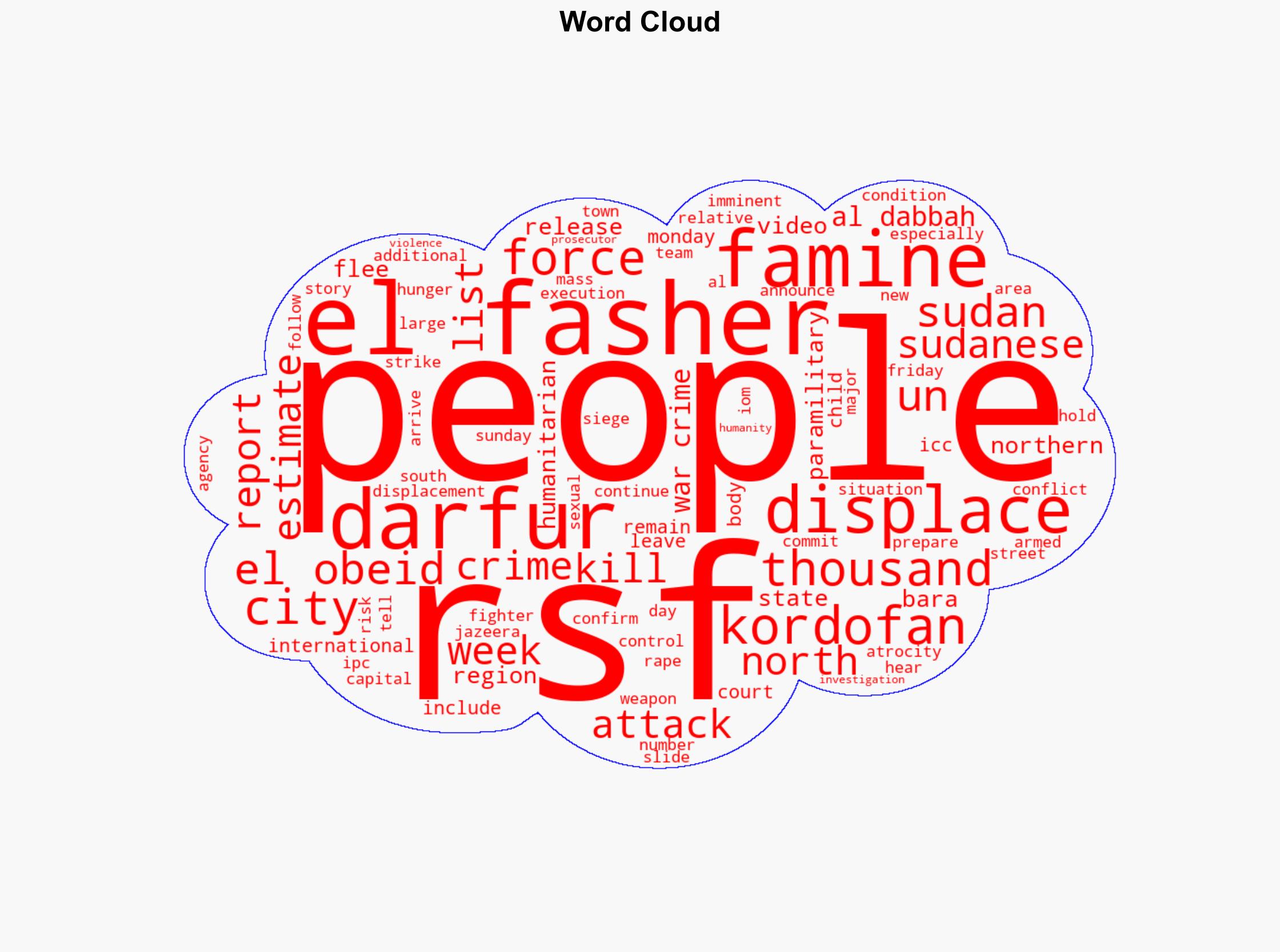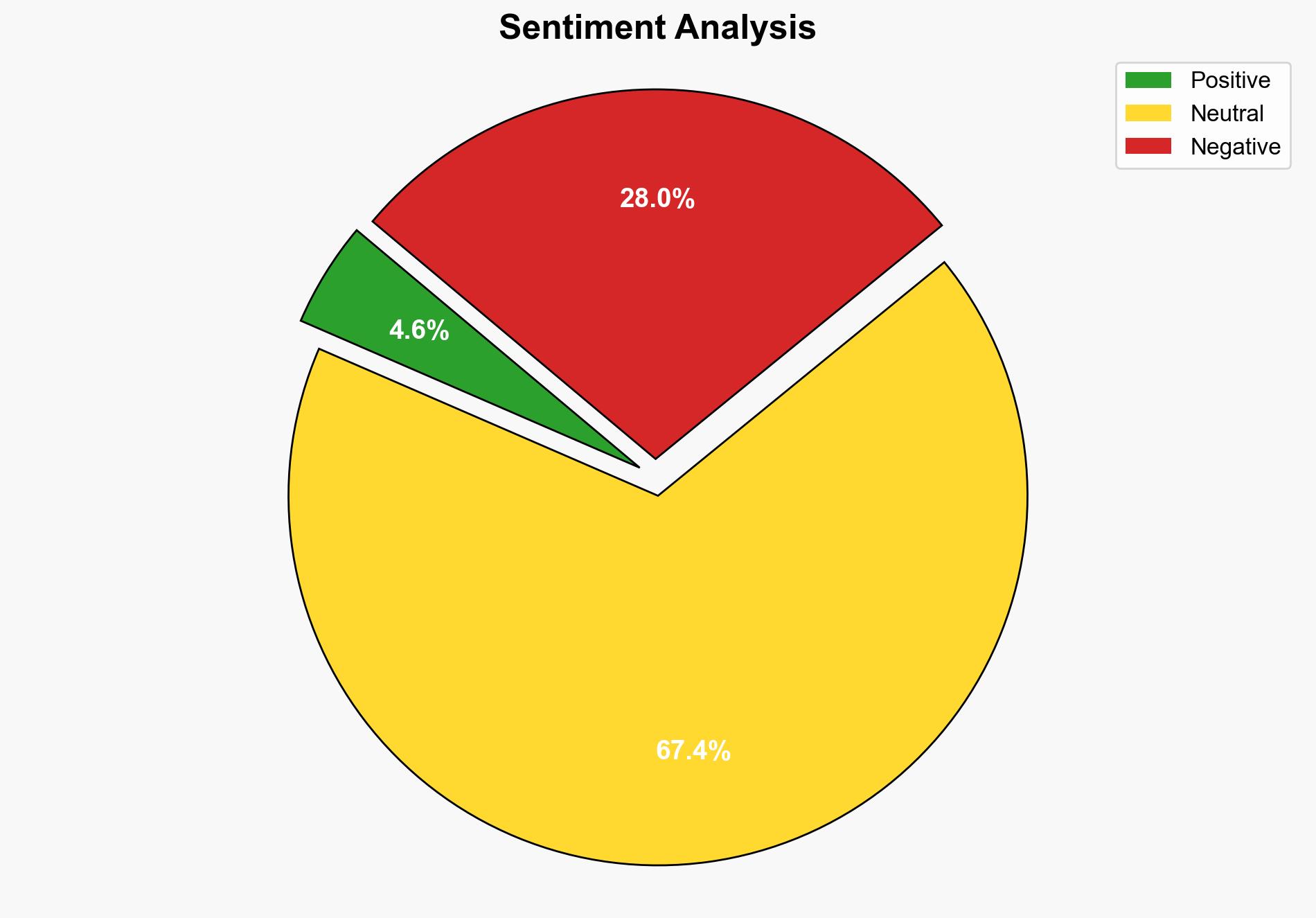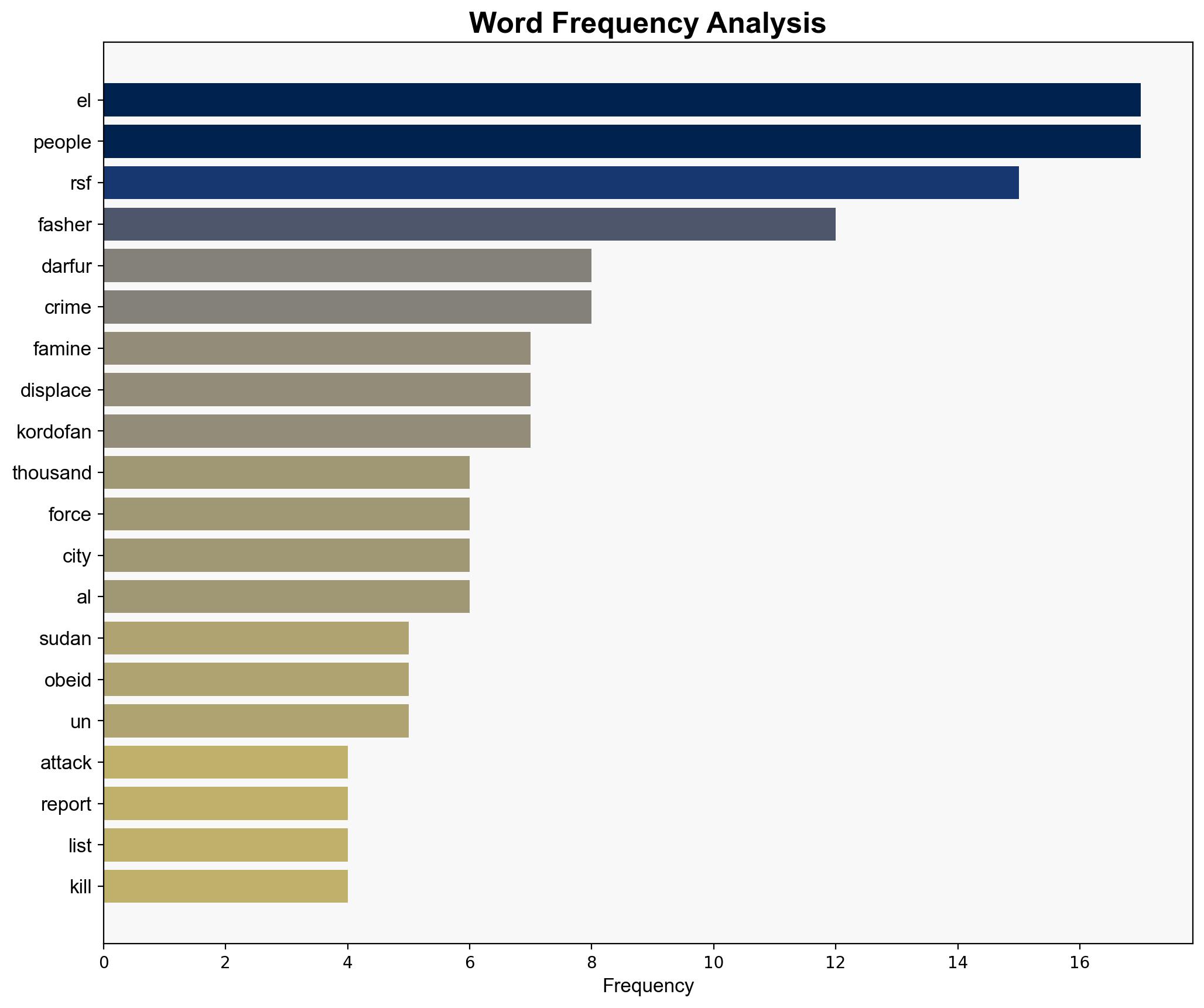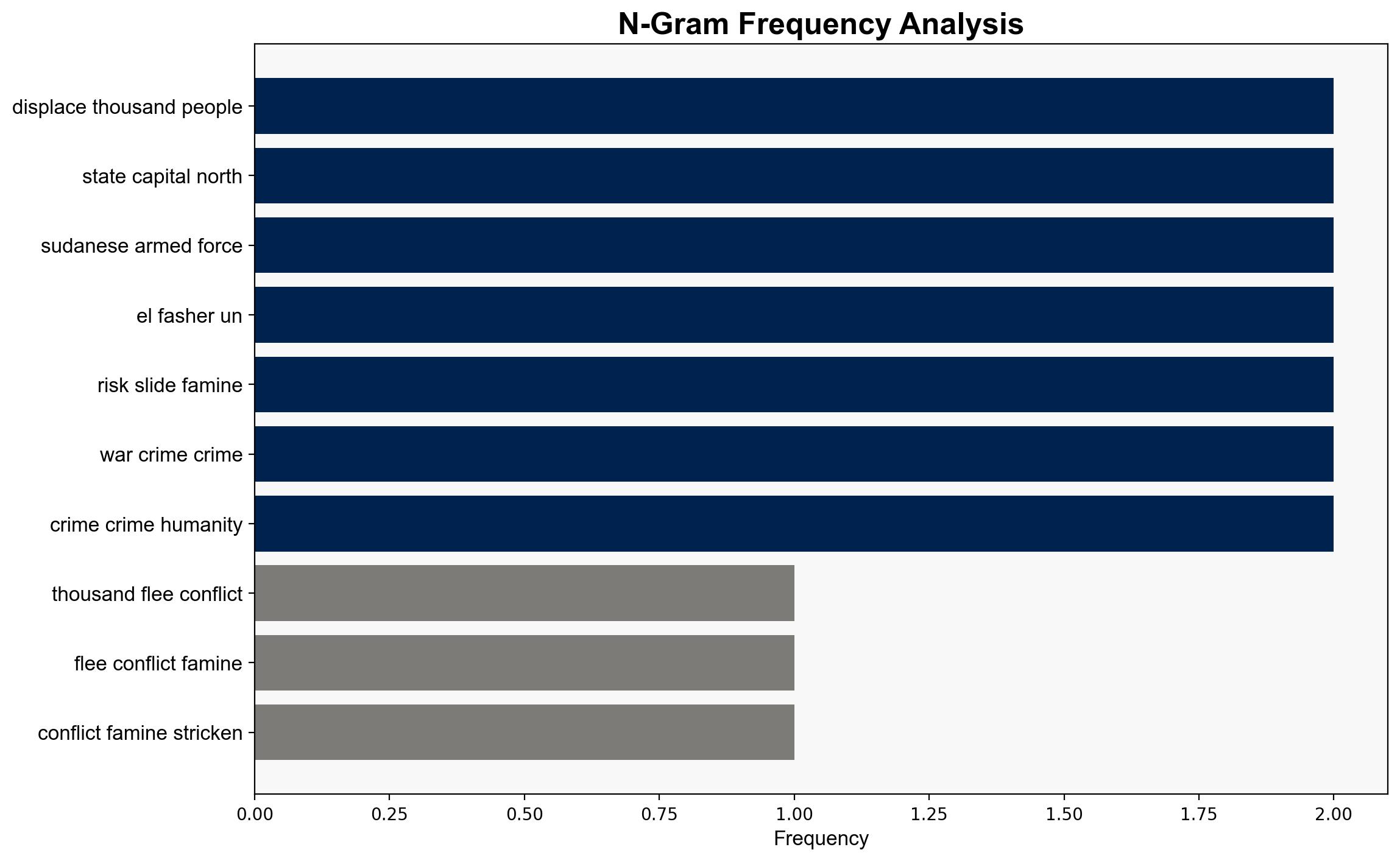Thousands more flee as Sudan conflict grinds eastwards – Al Jazeera English
Published on: 2025-11-03
Intelligence Report: Thousands more flee as Sudan conflict grinds eastwards – Al Jazeera English
1. BLUF (Bottom Line Up Front)
The conflict in Sudan, particularly involving the Rapid Support Forces (RSF), is intensifying and causing significant humanitarian crises. The most supported hypothesis suggests that the RSF is strategically advancing to consolidate control over key regions, exacerbating displacement and famine. Confidence level: Moderate. Recommended action: Increase international diplomatic pressure and humanitarian aid to mitigate the crisis.
2. Competing Hypotheses
1. **Hypothesis A**: The RSF is deliberately advancing eastwards to consolidate territorial control and weaken the Sudanese Armed Forces (SAF), using humanitarian crises as leverage against international intervention.
2. **Hypothesis B**: The RSF’s movements are primarily reactive, driven by opportunistic gains in response to SAF’s weaknesses, with humanitarian impacts being collateral rather than strategic objectives.
Using the Analysis of Competing Hypotheses (ACH) 2.0, Hypothesis A is better supported by the systematic nature of RSF’s territorial gains and the strategic importance of regions like El Obeid and El Fasher.
3. Key Assumptions and Red Flags
– **Assumptions**: Hypothesis A assumes RSF has a coherent strategic plan and sufficient resources to sustain prolonged offensives. Hypothesis B assumes SAF’s weaknesses are significant enough to allow RSF opportunistic advances.
– **Red Flags**: Lack of independent verification of RSF’s claimed strategic objectives. Potential bias in reports due to limited access to conflict zones.
– **Blind Spots**: Insufficient data on internal RSF dynamics and potential external support influencing their strategy.
4. Implications and Strategic Risks
The continuation of RSF’s advances could lead to further destabilization of Sudan, with potential regional spillover effects. The humanitarian crisis may worsen, increasing refugee flows and straining neighboring countries. Economically, prolonged conflict could deter foreign investment and exacerbate Sudan’s economic woes. Geopolitically, increased international attention might lead to external interventions, complicating the conflict dynamics.
5. Recommendations and Outlook
- Enhance diplomatic efforts to broker ceasefire agreements and facilitate humanitarian access.
- Increase humanitarian aid to affected regions, focusing on food security and medical assistance.
- Scenario-based projections:
- Best: Successful ceasefire and initiation of peace talks.
- Worst: Escalation into broader regional conflict.
- Most Likely: Continued RSF advances with intermittent clashes and humanitarian deterioration.
6. Key Individuals and Entities
– Mohamed Hamdan Dagalo (Hemedti)
– Rapid Support Forces (RSF)
– Sudanese Armed Forces (SAF)
– United Nations (UN)
7. Thematic Tags
national security threats, regional focus, humanitarian crisis, conflict escalation





